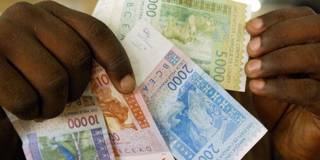West African leaders plan to create a new currency to replace the CFA franc, created by France 75 years ago. But because the CFA franc zone's 14 countries do not meet the economic criteria for joining a monetary union, the proposed eco zone will be a challenging, risky, and possibly painful venture for all involved.
ABIDJAN – West African political leaders recently announced that the CFA franc – a currency created by France in 1945 for its colonies and still used by 14 African countries – will be replaced this year by a new currency pegged to the euro called the eco. But lessons from the CFA franc zone’s own experience and from the eurozone raise serious doubts about the region’s preparedness for the challenges this new monetary union will bring.
Critics of the CFA franc zone have long focused on France’s perceived dominance, which many believe has resulted in what the late Cameroonian economist Joseph Tchundjang Pouemi called CFA Africa’s “monetary servitude.” New reforms will aim to change that by loosening ties with France, including by ending the requirement that member states deposit half of their foreign reserves there. (Previously, that rule included France’s guarantee of the convertibility of the CFA franc.)
But the real challenges facing African monetary unions have nothing to do with political sovereignty. They relate, instead, to economics.

ABIDJAN – West African political leaders recently announced that the CFA franc – a currency created by France in 1945 for its colonies and still used by 14 African countries – will be replaced this year by a new currency pegged to the euro called the eco. But lessons from the CFA franc zone’s own experience and from the eurozone raise serious doubts about the region’s preparedness for the challenges this new monetary union will bring.
Critics of the CFA franc zone have long focused on France’s perceived dominance, which many believe has resulted in what the late Cameroonian economist Joseph Tchundjang Pouemi called CFA Africa’s “monetary servitude.” New reforms will aim to change that by loosening ties with France, including by ending the requirement that member states deposit half of their foreign reserves there. (Previously, that rule included France’s guarantee of the convertibility of the CFA franc.)
But the real challenges facing African monetary unions have nothing to do with political sovereignty. They relate, instead, to economics.